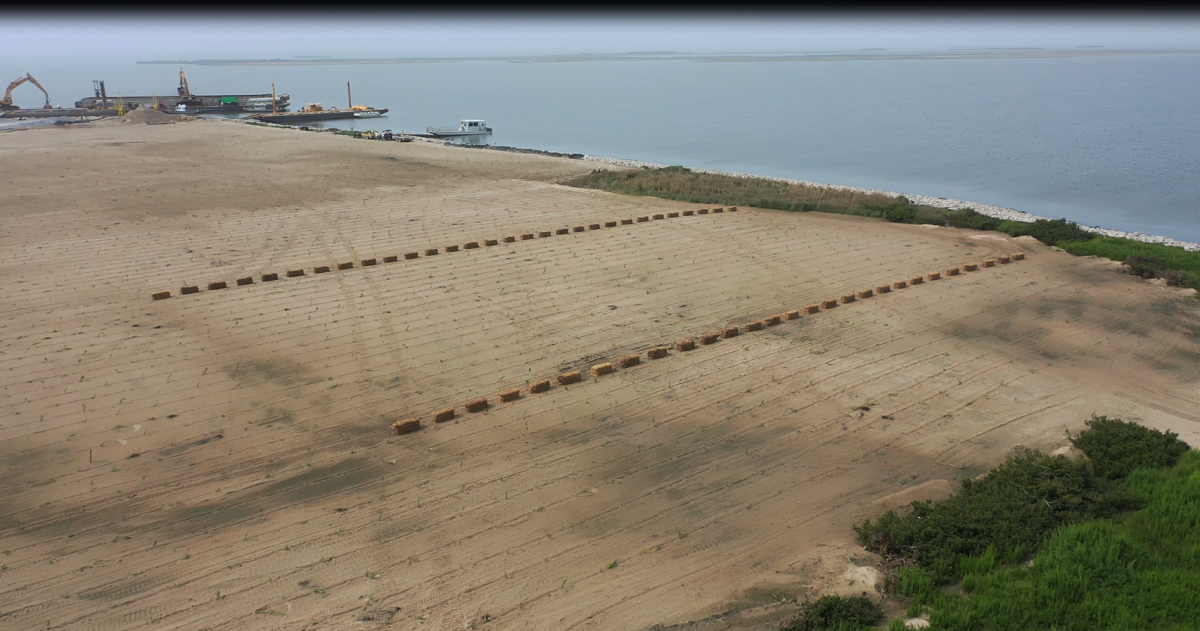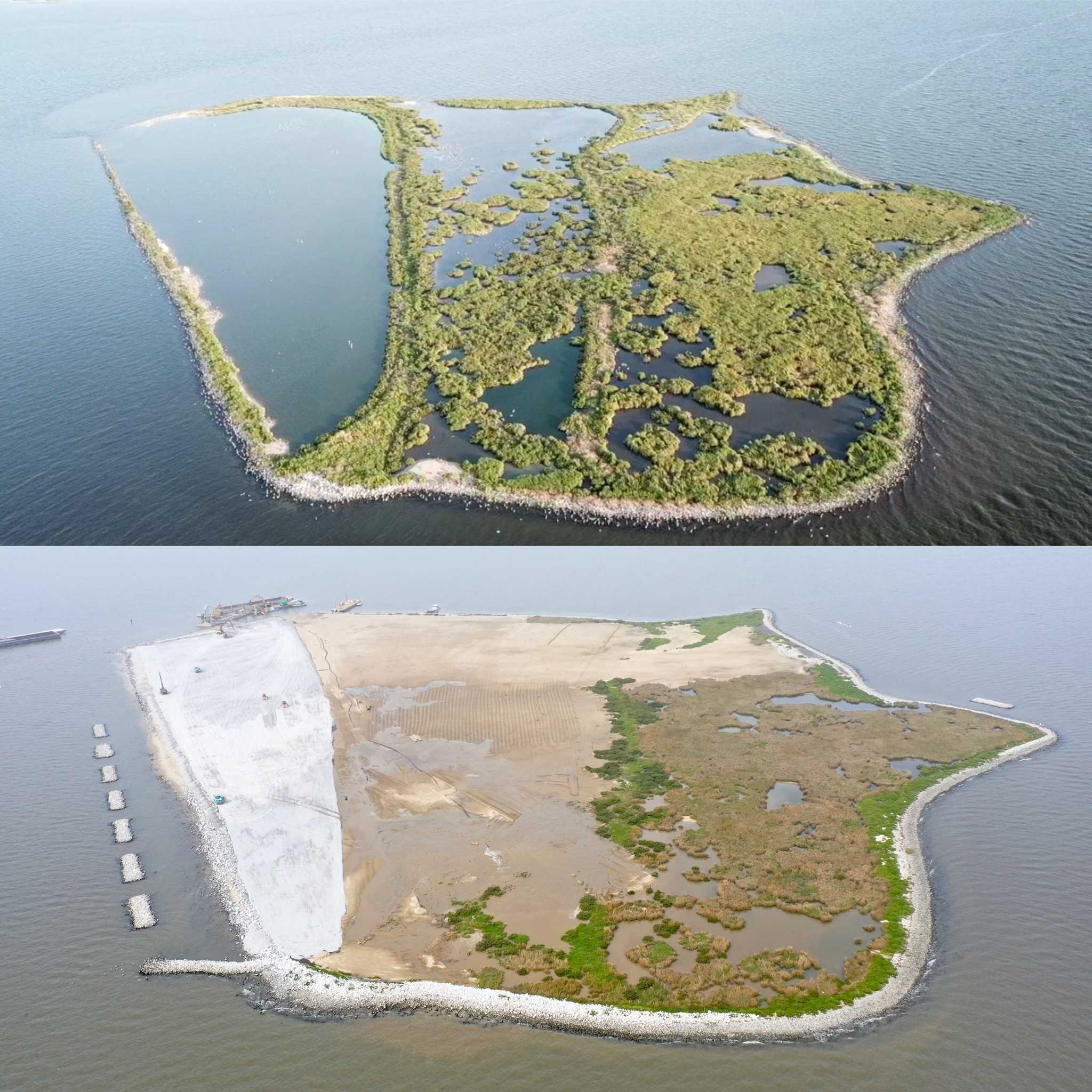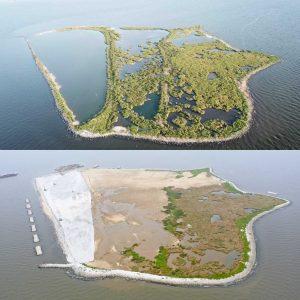LSU Department of Biological and Agricultural Engineering alumna Amanda Phillips is helping to restore Queen Bess Island, a home for brown pelicans that was damaged by the 2010 BP oil spill.
The island, located in Grand Isle and north of West Grand Terre, houses 4,500 nests, including 3,000 brown pelican nests. It is the third largest colonial waterbird colony in Louisiana. Before repairs, the island was left with only 5 acres of arable land. Now, the colonies will have 37 more acres of nesting and habitat areas.
“I think they’ll like what we’ve done with the place,” Gov. John Bel Edwards said when he confirmed restoration plans for the island on Feb. 3.
Protecting the Louisiana state bird was a high priority after the oil spill, and it was approved in March 2019.
“It ended up going very smoothly and worked out well, which is a testament to all the people involved and knowing this project was so critical,” Phillips said.
In the 1990s, protective rock rings were built around the whole island. The new project augmented the rock barrier with boulders, and lined it with geotech fabric so the sand wouldn’t leak.
Sand was barged in from a quarry around the Mississippi River in Belle Chase. Then, it was dropped into a slurry box to mix it in with water and pumped through a pipe onto the island. Rows of hay bales were placed every 100 feet to reduce wind-blown sand erosion, provide additional nesting substrate and protect the young plants.
Project manager for Coastal Protection and Restoration Authority Katie Freer said the team made many trips, but they wanted to finish by mid-February, the official start of the brown pelican nesting season.
“Pelicans are really loyal, so they try to come back and nest where they were born,” Freer said.
The Louisiana Department of Wildlife and Fisheries, Fenstermaker, U.S. Fish and Wildlife Service, CPRA and many others contributed to the completion of the island.
“There’s multiple types of expertise that need to come together to solve a complex problem like this, and the goal is for it to last the next few decades,” Freer said.









